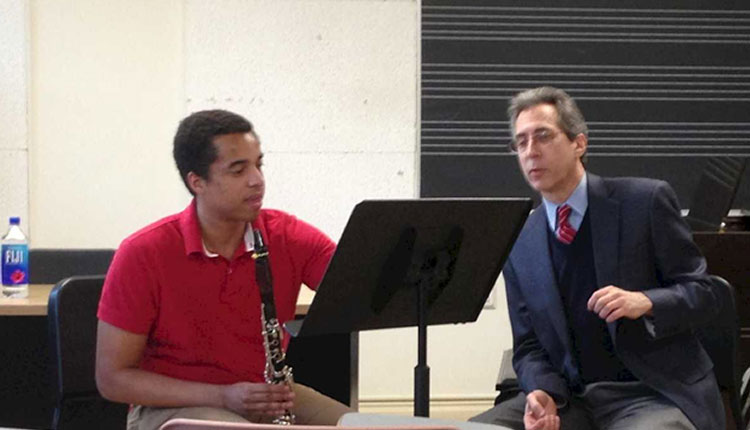Warming Up
Mitchell Estrin, Professor of Clarinet at the University of Florida Buffet Crampon USA, Inc Educational & Creative Development Manager
The most basic and perhaps most important part of practicing is warming up. How you go about doing this is essential to your success on the clarinet. Use your time wisely to achieve the maximum results in the minimum amount of time. Structure your warm-up carefully and follow these three steps to a great warm-up:
1) Longtones
Start your practice session with five to ten minutes of longtones. Start in the chalumeau (low) register and gradually work your way up to the clarion (middle) register. Pay careful attention to your tone quality, especially when playing at a soft dynamic level. Take full breaths and always use maximum breath support.
2) Scales
Scales are the single most important musical element for a clarinetist (or any instrumentalist) to practice. One should strive for a thorough knowledge, understanding, and flawless execution of all scales. This means the major scales, minor scales, chromatic scales, wholetone scales, thirds, dominant sevenths, diminished sevenths, and all related arpeggios. The Baermann Third Division is an excellent book to use for scale practice. I also like the Stievenard Practical Study of the Scales for Clarinet.
3) Articulation
The third part if your warm-up should focus on articulation practice. TheKell 17 Staccato Studies is my favorite book to use for both teaching and practicing. Strive for symmetry of your articulation, particularly on repeated notes. Don’t only focus on increasing the speed of your articulation, but also on the quality of your sound while articulating. Tape yourself and compare your tone quality when playing both legato and staccato at all dynamic levels. Make sure they all sound exactly the same.
If you consistently follow these three steps when warming up, you should notice a big improvement in your playing. Good Luck!
For information on Buffet Crampon please visit www.buffetcrampon.fr


